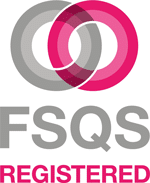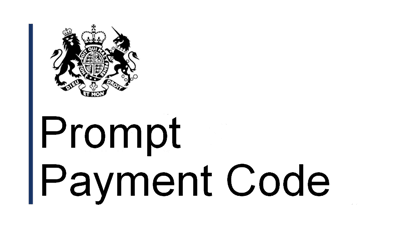Gill Dando, Principal Consultant, RQA Group
Introduction
In my last blog we looked at using the Never Events principle applied to product recalls in the food industry. Never Events can relate to the mislabelling and misrepresentation of food products, posing risks to consumers with dietary restrictions or allergies. This new article explores the rise of specialist product marketing claims, the differences between vegan and “free from” labelling, and the potential risks for serious allergy sufferers.
Specialist product marketing claims like “vegan” and “free from” have gained popularity as consumers seek products that cater to their specific dietary needs. While vegan labelling emphasises the absence of animal-derived ingredients, “free from” labelling focuses on specific allergens. As the word vegan is synonymous to most people with products devoid of animal products, and therefore presumably any traces of their proteins. It is understandable that many members of the public (including allergy suffers themselves or their guardians) may assume “vegan” is also synonymous with “safe” for those with egg or milk protein allergies for example.
However, the fact is that the lines between these claims can be blurred, leading to confusion, which can have devastatingly serious impacts for consumers, particularly for those with food allergies. The Vegan Society for example take the stance that although their preference is for no risk of contamination they will tolerate some degree of risk in factories and allow for ‘alibi’ labelling on trademarked products in order to provide greater freedom of choice to this highly complex consumer market[1].
UK and EU Labelling Legislation
In the UK, food labelling claims are regulated under the retained EU bill. This is known as the Food Information to Consumers (FIC) Regulation, (EU) No. 1169/2011, which has been implemented into UK law as the Food Information Regulations 2014 (FIR). While “vegan” labelling lacks a specific legal definition, it should align with generally accepted understanding. As a separate category, “free from” claims must meet specific rules, such as legal thresholds for allergens where they exist (e.g. <20ppm gluten). It is important to note that the specific thresholds and regulations may vary depending on the allergen, and also by country or even region. Food businesses should refer to the relevant regulatory authorities in their jurisdiction for detailed information on allergen thresholds and labelling requirements. Compliance with accurate labelling practices and consumer expectations is crucial, despite the absence of standardised definitions.
What about the US?
In the US, the FDA regulates food labelling claims to ensure they are not misleading. “vegan” claims signify the absence of animal-derived ingredients, while “free from” claims must be truthful and not pose health risks. Voluntary certifications, like the Certified Vegan logo, exist but are not mandated by law. Compliance with FDA for food and FTC (Federal Trade Commission) for nutraceuticals regulations is important to ensure accurate and non-misleading labelling. The US Food Allergen Labelling and Consumer Protection Act (FALCPA) requires that food labels clearly declare the presence of any of the nine major food allergens. These allergens include peanuts, tree nuts, milk, eggs, fish, crustacean shellfish, wheat, soybeans and sesame. While FALCPA does not specify thresholds for these allergens, it mandates the disclosure of their presence to protect consumers with food allergies.
PAL: Friend or Foe, to Alibi or not to Alibi?
Precautionary allergen labelling (PAL), often termed alibi labelling, is voluntary and not regulated by law in many countries. While it can inform consumers about potential allergen cross-contact risks, it should not replace robust allergen management practices. Alibi labelling should not compensate for accidental inclusion within a product of whole or part material however it could mitigate low level cross-contamination from difficult to control surface or air borne residues. The difference may sound subtle but really it often simply requires the application of logic and common sense.
Everyone remembers those days where a packet of peanuts said ‘may contain nuts’ or a sachet of mayonnaise had an alibi statement covering a long list of Major Food Allergens. Those sorts of practises were really indicators of ‘lazy labelling’ and drove customers and consumers to ignore and devalue the impact of PAL labels. Perhaps we are in a better place now but always be cautious that these statements can be misleading, misread or under recognised by the public so are not infallible. However, in saying this, if there is any risk at all of potential cross-contamination then absolutely PAL labelling should be applied and in the case of ‘Free-From’ it certainly couldn’t be used to cover any residual risk. In fact if not it would be contrary to the UK Food Safety Act of 1990 (nature, substance, quality) and liable for prosecution.
As previously mentioned, the case for vegan products is a little less cut and dry and depends on company or retailer driven policy, brand standards that may apply and any trademarking regulations set out. In the example given earlier, we recollect the Vegan Society do tolerate some use of the alibi labelling system for animal based products at risk of cross-contamination where absolute exclusion is not possible to guarantee[2]. In this case their point of view makes a lot of sense as this label is available to the consumer so adds a level of protection for allergy suffers should they read it. Of course, not all consumers of vegan products apply the same ethical code themselves and some may be flexitarian, meat reducers or simply looking for different options therefore they take a pragmatic stance and support food businesses where they can to promote this lifestyle. Many people are at first shocked to hear that alibi labelling for animal products is tolerated on Vegan Society trademarked products but hopefully this now makes more sense as the aim to increase consumer choice and to keep price points low and accessibility high comes with a dose of healthy pragmatism.
Implementing effective allergen management procedures, such as segregation and staff training, reduces the reliance on precautionary labelling, opens up clearer and better choices for the consumer, removes complacency and ultimately supports consumer safety. Ultimately, we must always consciously challenge ourselves to remember that not all consumers will have the same knowledge as us and even within our own industry we cannot agree, so the struggle is real.
Summary
In today’s competitive environment with consumer spend stretched to an all-time extreme it has never been more important to get good quality, safe new products out to shelf to maintain a sustainable food manufacturing business. The rise of ‘specialist’ product marketing claims such as Vegan and Free-From cannot be ignored and over the last few years are now a staple in nearly all stores and certainly all major retailers. This increase in availability however presents not only more opportunities through choice (and competitive pricing) but also may be seen to add risks for consumers, particularly those with severe food allergies.
Accurate and honest labelling practices, regulatory controls & guidance application with a ‘best practise’ mind-set and actively staying informed about changes in these arenas along with customer perceptions are crucial for food businesses to navigate this landscape and ensure consumer safety. Perhaps there is scope to educate the consumer and manufacturers even further? With the rise of tighter regulation and control of allergens from the UK food information amendment, known as Natasha’s Law, and some high profile tragedies in this space much more is being done and publications to assist the public by organisations such as the FDF[3] have been produced to try to bridge this space. However, seemingly it is not enough to rely on the consumer to have the knowledge or simply the time to check every item in such detail as lives become busier and more and more pressurised. As food manufacturers and responsible organisations we can certainly come together and help even more. By providing clear, accurate and truthful information whilst removing any conscious and/or unconscious biases as to the end use or understanding of claims on product labels is key to success. Only by truly doing this will food businesses meet the demands of specialty food product consumers while mitigating risks to allergy sufferers.
If you would like to discuss allergen management, labelling issues, or specialist training in the area of allergens please get in touch on [email protected] or call +44 (0)118 405 0192.
For more on our food safety services click here.
[1] The Vegan Trademark | Trusted Vegan Labelling | Business (vegansociety.com)
[2] https://www.vegansociety.com/news/blog/TM2021/allergen-vs-vegan-labelling


